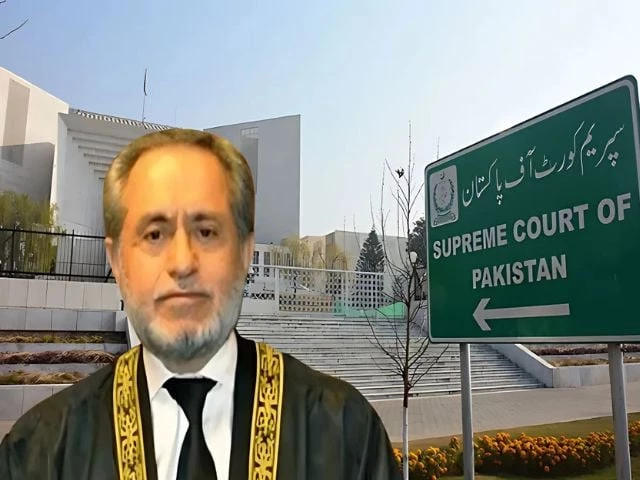Judge Jamal Mandokhail.
ISLAMABAD:
The Supreme Court has released Justice Jamal Mandokhail’s dissenting opinion in the reserved seats case, in which he rejected the majority ruling that had partially accepted several appeals.
Its 12-page judgment, uploaded on the court’s website, reaffirms its earlier position of granting 39 reserved seats while questioning the legality of the majority’s approach to another 41.
Justice Mandokhail said the majority decision on the 41 seats was incorrect, arguing that the court lacked the authority to declare those candidates independent. He wrote that no judicial forum, including the Supreme Court, can alter the declared political affiliation of any candidate.
Furthermore, he stressed, the matter of the 41 people was not pending before the court. He said the majority ruling therefore exceeded the court’s jurisdiction and addressed issues never brought before it by any party.
Reaffirming his stance, Justice Mandokhail said his original decision on allocation of 39 seats remained intact and legally sound. He argued that the majority ventured beyond the limits of the file, generating consequences for candidates who had not sought any protection and whose political positions could not be reassigned by court order.
In his dissenting note, Justice Mandokhail also referred to the composition of the court that heard the matter. He wrote that the Judicial Commission faced no restrictions in appointing any Supreme Court judges, including those who had served on the previous bench that heard the main reserved seats case.
He said there was no reason to exclude those judges solely because the matter once again concerned reserved seats. He said he had formally proposed in the Judicial Commission that all those judges be included in the court for the review, but the majority of the Commission did not accept his recommendation.
According to him, including the original members of the court would have ensured continuity and maintained the principles of consistency in constitutional adjudication. Justice Mandokhail stressed that the Commission possessed the legal authority to make such appointments and that its proposal was aimed at ensuring transparency and institutional trust.




